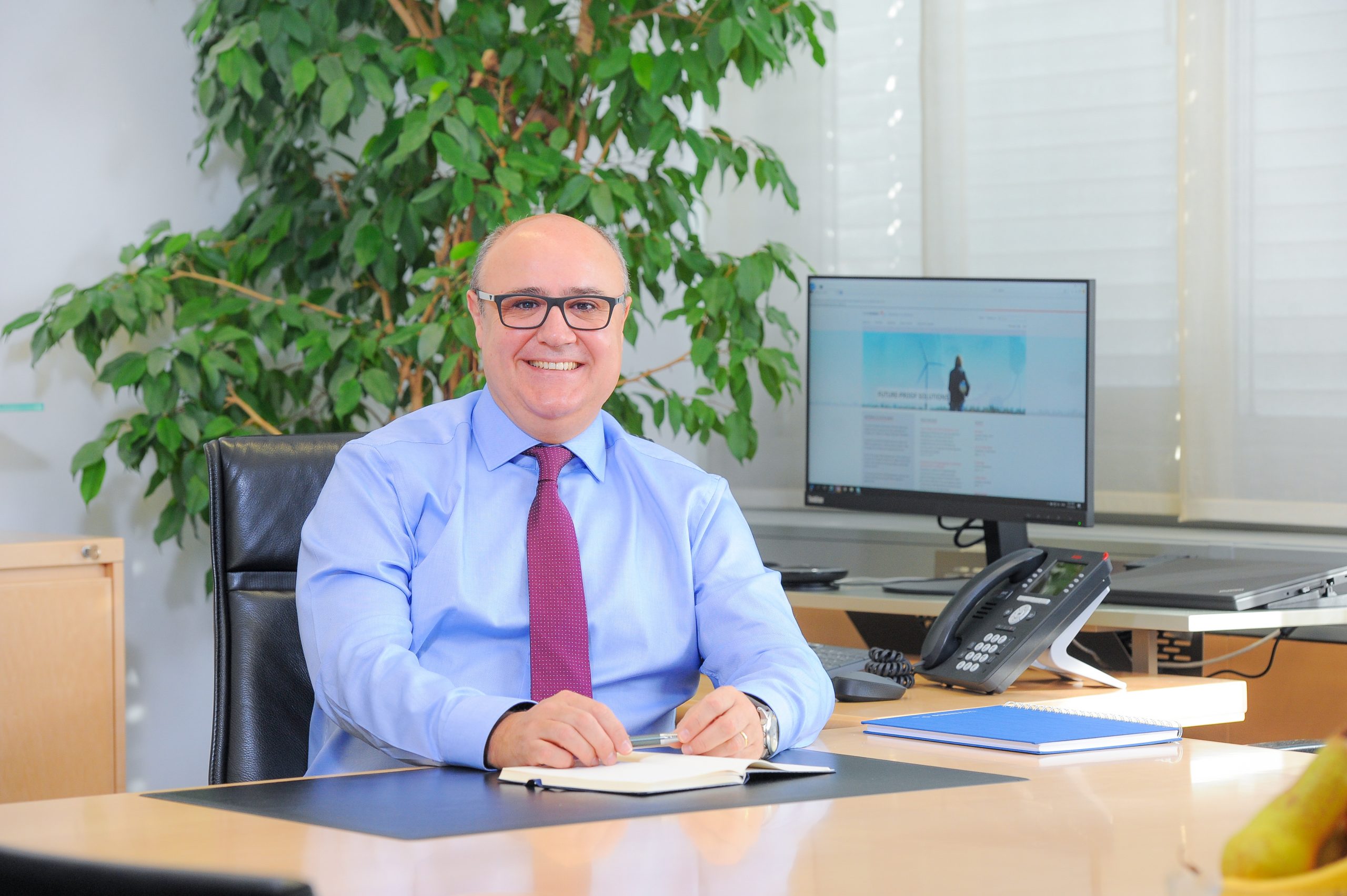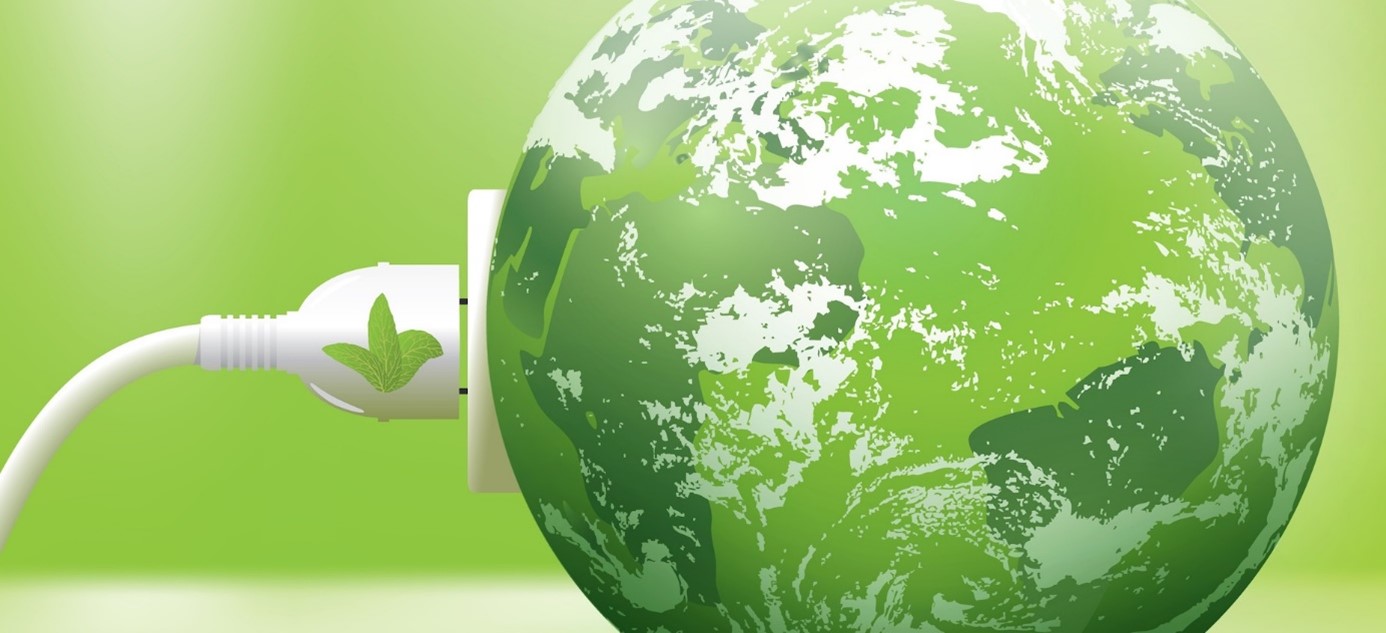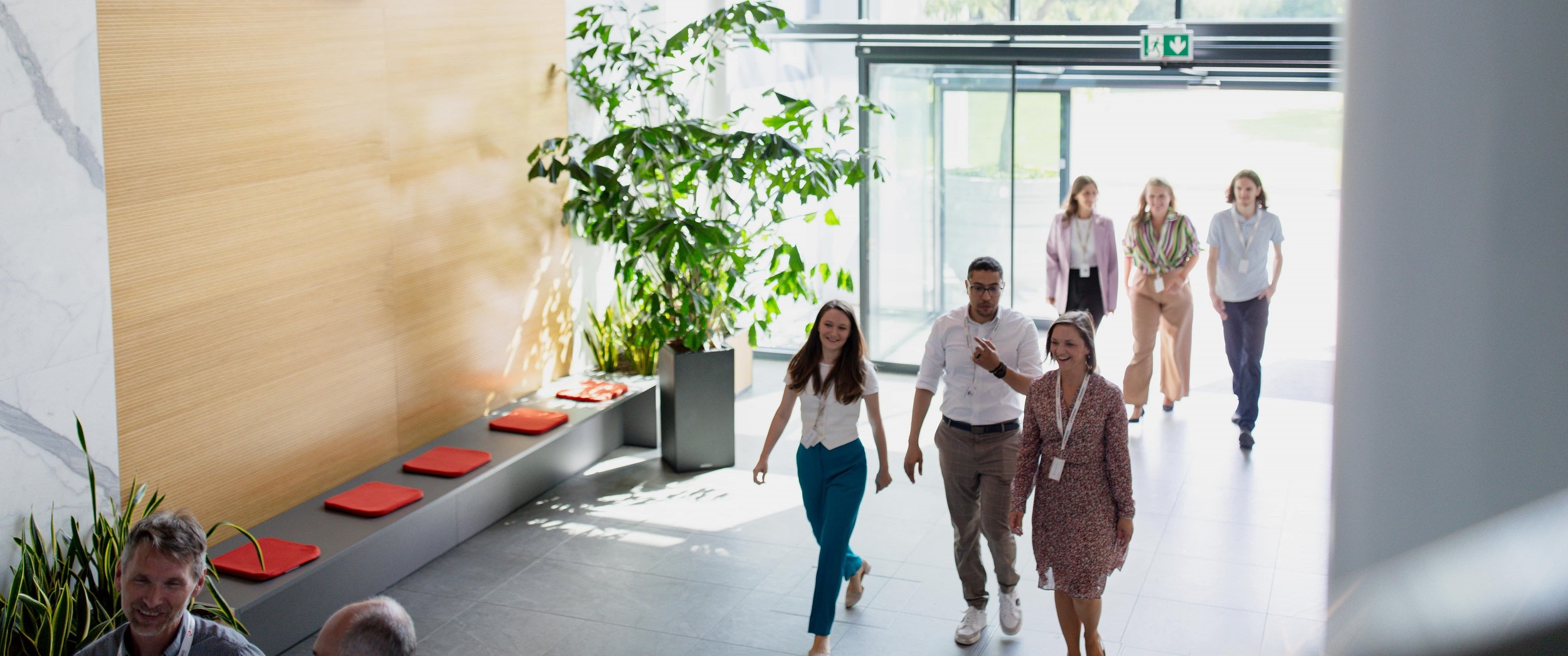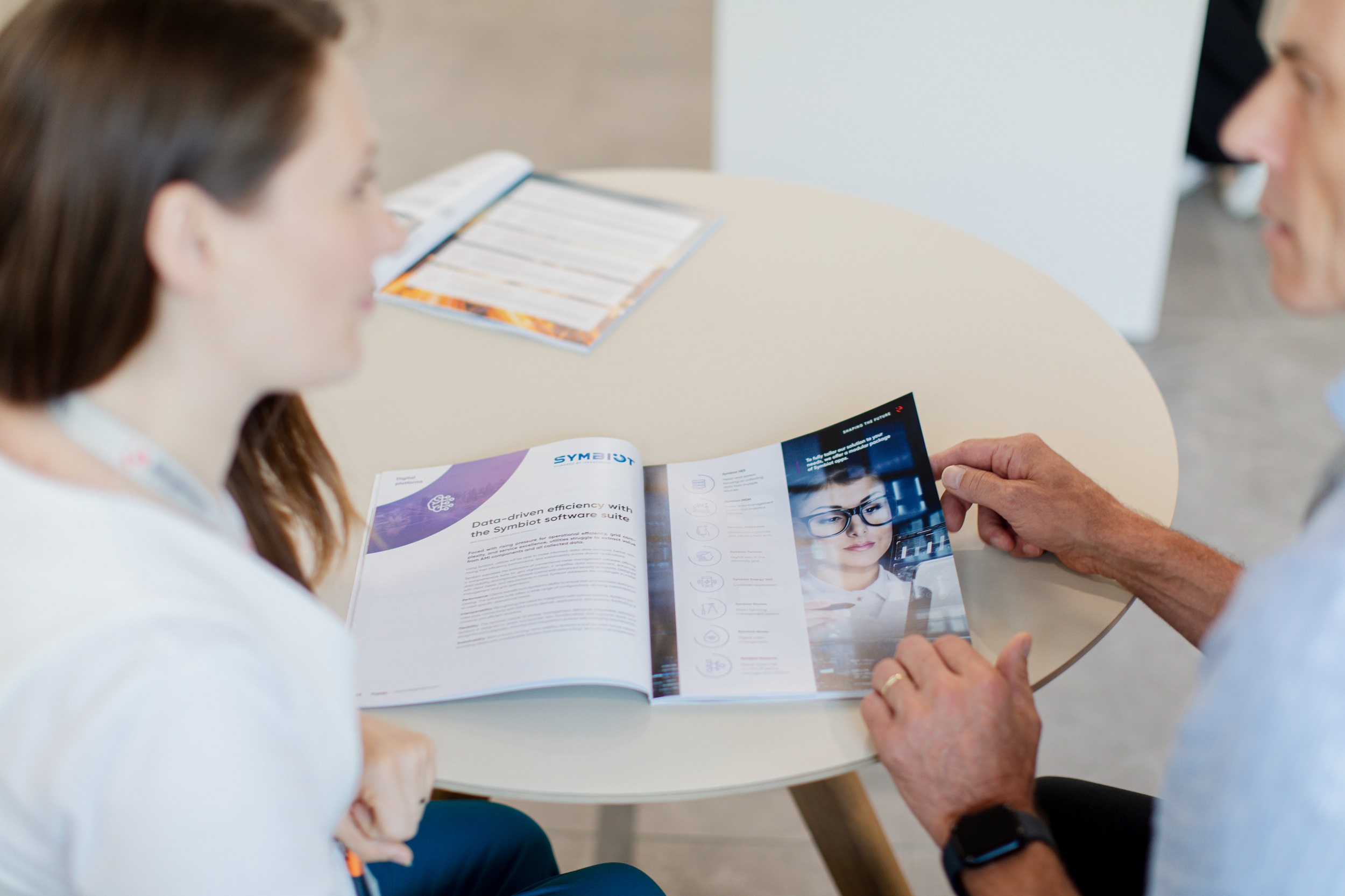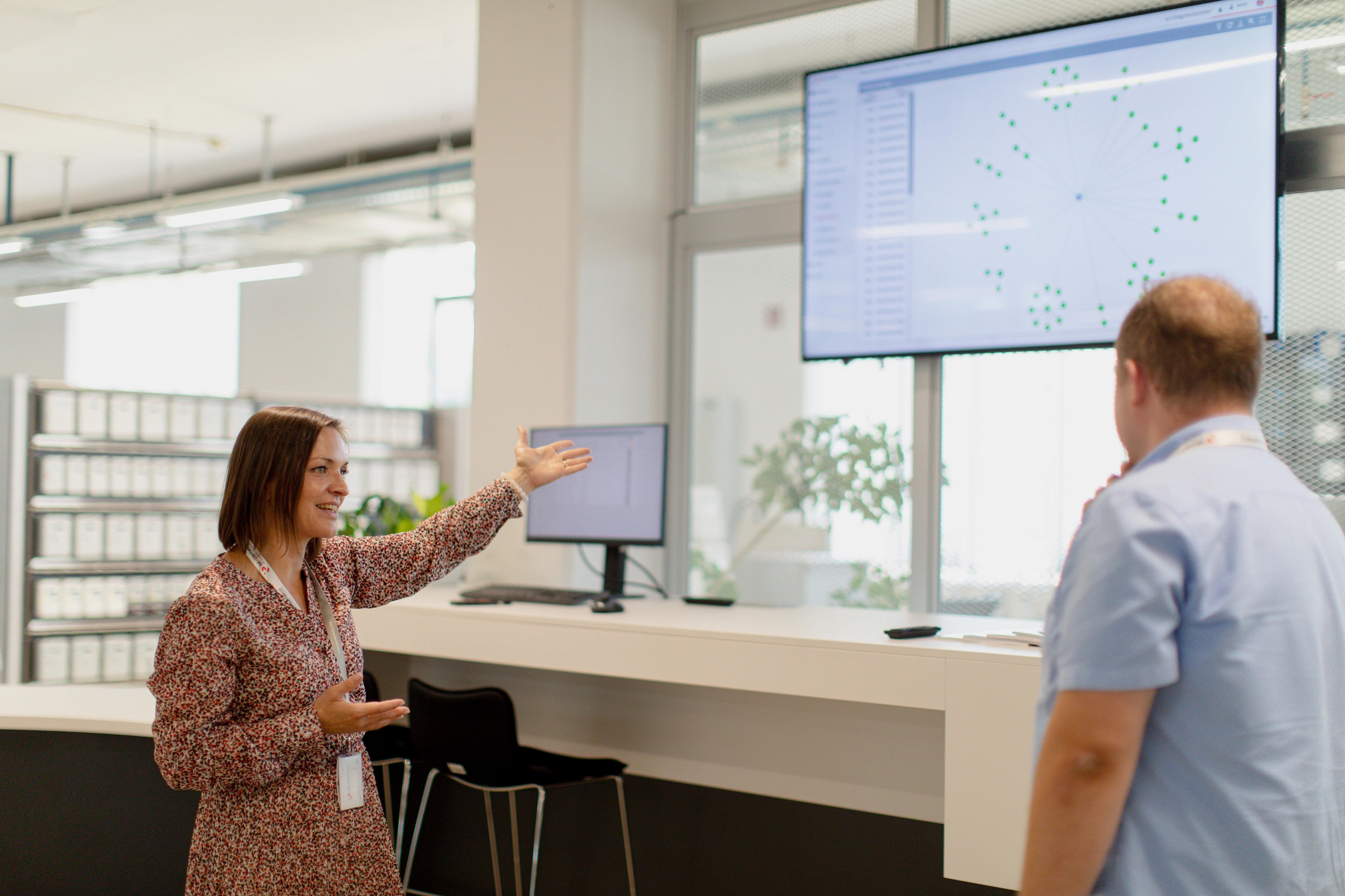In comparison to an average home, a carbon footprint of a factory is indeed bigger than the one of a one-family house, but what happens when we take a look at 1000 or more homes?
Meeting the Targets
If we want to meet the set goals by 2030, everyone will have to show strong will and determination. Reaching net-zero carbon emissions by 2050 can be realized only if everyone from household owners to managers decides to implement smart meters and track the use of energy – starting today. Without smart meters, the improvement will be slow, while progress will not accelerate. Reaching the CO2 reduction targets will be slower, more expensive, and all in all much harder to achieve.
An upgrade to a smart meter is a great contribution to reducing our impact on Earth. Smart meters are the base when it comes to individuals managing their energy consumption. At Iskraemeco, we are positive that every consumer would like to improve their energy consumption. To achieve that, the consumers need to have the real-time information at their disposal, and they have to learn how to understand them. If the consumers cannot access the data, understanding and using their benefit is impossible.
Having a smart meter increases the chances of saving incomparable amounts of carbon. Smart meters are the only device that enables integrating of low-carbon technologies and renewable sources of energy into the decentralized and digitalized electric network. Delta-ee’s report Smart Meter Benefits shows that 25 % CO2 saving by 2035 (compared to CO2 levels of 2015) will happen only because smart meters will enable more efficient use of energy in households and therefore reduce the effect of electric heating on the grid.
There are, of course, other means by which the CO2 reduction targets could be achieved, but only with access to the right information. One of the other options is installing another measuring device to the network to measure energy consumption, but is it precise enough? Can you charge for it at the end of the month? These imposing questions complicate things. Smart meters are easier to use. They provide the real-time information about the consumption and the cost of the energy used. Based on that, the consumer can then improve their energy consumption, which is important for meeting the CO2 reduction targets.
How Can Smart Meters Contribute to Lowering Carbon Emission?
The whole energy system is changing profoundly. It needs to be reconfigured to meet the demands of obtaining energy from renewable sources. Relatively newly applied digitalization of electric grids enables flexibility and optimized use. Data provided by smart meters is the key component of lowering carbon emissions. Flexible, smart networks in combination with smart meters can reduce the demand for electricity. But how?
Obtaining energy with the help of fossil fuels has an enormous carbon footprint. Implementing electricity generated from various renewable sources provides the most effective and cleanest solution which also saves more CO2 than any other. The technology needed for implementing renewables is not as expensive as it used to be, which makes its deployment easier. Using renewable sources is, besides ensuring CO2 savings, also the safest and most reliable way of obtaining clean energy; all alternative options are not as safe. Besides, generating energy with nuclear reactors, for example, is much more costly, and its carbon capture and storage are not yet tested well enough to draw any firm conclusions.
Only smart networks can handle energy generated from renewable sources and balance the intermittency of nature by providing storage and flexible services. “To decarbonize the energy system and meet our climate change targets, we need much more flexibility to allow for the integration of decentralized low carbon technologies
Dr. Andrew Turton, the principal analyst at Delta-ee
The networks are only going to become more complex, and the energy providers will need a lot more data. Complexity here means that the data is necessary for managing the network, which means that it is also important for balancing the energy generation. If this is not available, the existence of a strong, efficient network providing the right amount of energy being consumed and the right energy being generated is impossible. Hence, the flexibility and other functions of smart networks cannot be fully optimized without smart meters.
Smart meters are an indispensable part of a smart network because they assure the flexibility that enables interoperable solutions. They can manage storage and generation and guarantee the best solutions for customers – concerning efficiency and value. Renewable generation of energy will be much harder to apply on a predominant scale if smart meters are not applied in most households. The failure of integrating renewable energy into our system will most likely result in further use of fossil fuels and unfulfilled CO2 reduction goals. Without smart meters, the process of decarbonization will be more difficult and slowed down.
In addition to switching to renewable sources, we will also need to decrease the demand for energy in various sectors. When it comes to reducing consumption, smart meters are invaluable. The analyses of the data they provide can tell us about the most critical times of consumption of energy. When we know about the critical points, we can start looking for improvements. Smart meters’ data will help us realize where and how we can most efficiently change our consumption. “This system needs customers to use energy at the times when low carbon supply is available. This, in turn, requires energy demands to be accurately measured in near real-time,” adds Dr. Turton. Due to smart meters, users understand energy better than they used to. Now, they can also improve the ways of their consumption because of the knowledge they have and data they can access. Standards meters do not supply the data needed to improve consumption. Hence, consumers are less sure of how they can use energy more efficiently and improve their savings.
Future Will be More Demanding
Considering the current changes in the energy system, we can only predict more radical ones in the future. Delta-ee’s report predicts that novelties in “energy services and business models will transform the way energy is bought and sold,” which will take care of everyone’s needs while reducing levels of CO2 with flexible operating. Such innovations will depend on smart meters because they will provide information about the timing and details of energy demand. Without smart meters, none of the novelties will be applied, which will lead back to less controlled generation and even fossil fuels.
Smart meters cannot solve the problem of high carbon dioxide emissions just by being joined to the network, but they do connect consumers to the electric system. However, they provide that data that consumers can use. Without the latter, managing energy consumption is not possible. At this point, we have e-mobility and a lot of devices in our homes. Yet, how are we going to build and manage the network and manage the overall ecosystem if we do not have the sufficient data at our disposal? But with smart meters, we can obtain the data. Most of the time, the data comes from smar meters. So, smart meters are the fundamental base of a strong ecosystem, for they enable managing the energy consumption and the energy infrastructure. Based on that, they also contribute to the reduction of CO2.
From there on, namely, from owning a smart meter, it is up to people and their knowledge about how much smart meters can contribute to achieving CO2 reduction targets. We all have to intensify our attempts in decreasing carbonization to achieve a positive result: the low-carbon future powered by sustainability. Full integration of smart meters and a positive approach to effective use of energy can make a big difference in the amount of the CO2 emissions and greatly contribute to a more sustainable future and healthier environment.
The European Green New Deal
Europe was brought together to discuss the global climate changes and decided to make the European continent climate neutral by 2050. The European Parliament introduced ten pillars that define the Green New Deal. The deal has to strive towards reducing the rising of temperature worldwide to 1.5 degrees, involving public institutions with the GND, empowering people to make changes for the future, securing jobs for everyone and with that supporting equality and raising the quality of life, improving the future, decreasing the importance of endless progress, fighting climate change, and initiating immediate action.
The Green New Deal is a very important topic for everyone and since the ideas are there and are promising it is difficult to say that it will improve our Co2 reduction and decrease the levels of global warming. The global population is growing and with it also the industries. More countries are getting access to energy which provides a better life but also increases the consumption. So are these countries going to reduce the energy consumption and be bound to an agreement that could impact people and growth of the country?
For now Europe shouldn’t start teaching other countries and everyone who wants to move towards the European living standard, but should focus on solving our own environmental issues and then be an example to the society. To unlock the deals potential we have to change our way of thinking and also our lifestyle, since every single contribution to making our environment a better place to live is now very important.
Luis Goncalves, CEO Iskraemeco
